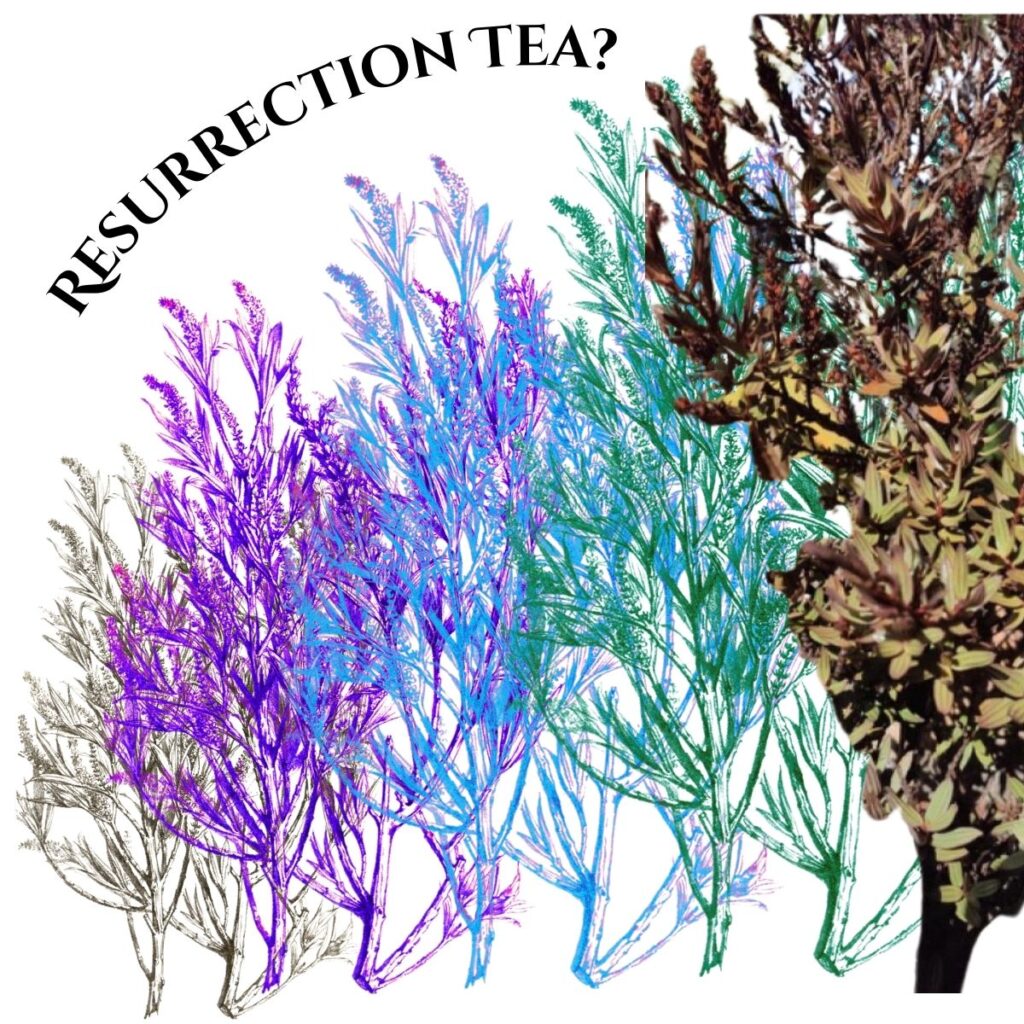The Resurrection Plant (Myrothamnus moschatus, not to be confused with Selaginella lepidophylla, also known as a Resurrection Plant) appears shriveled and dry during drought but rapidly rehydrates and revives with moisture.
It has small, fragrant leaves and is adapted to survive extreme dehydration, making it a botanical curiosity and a symbol of resilience.
This species is endemic to the highland regions of Madagascar, particularly in rocky, arid environments.
In traditional Malagasy medicine, The Resurrection Plant is used as a tonic and stimulant, often prepared as a tea to support respiratory health, digestion, and general vitality. The plant is also valued for its aromatic and cleansing properties, used in ritual purification and as a protective charm. Its resilience and scent have made it culturally significant in both spiritual and practical healing contexts.
Malagasy people have traditionally smoked the leaves for asthma and for a psychoactive action that is described as similar to marijuana.
Through scientific investigation antioxidant, antimicrobial, anti-inflammatory, cytoprotective, and adaptogenic activities have been observed.
The essential oil of The Resurrection Plant is commercially valuable for its musky, balsamic fragrance, and is sometimes used in perfumes and aromatherapy blends.
While not used for food or textiles, its aromatic nature and symbolism as a “resurrection plant” give it spiritual and decorative uses, including in potpourri and wellness rituals.
Its leaves are also studied for their potential in preserving cosmetics or pharmaceuticals due to their stabilizing polyphenols.
One study evaluated the chemical composition and pest-control potential of essential oil from The Resurrection Plant collected in Madagascar. The oil was rich in trans-pinocarveol (37.7%) and pinocarvone (20.8%), consistent with known chemotypes from the region. Laboratory tests demonstrated strong insecticidal and acaricidal effects against a range of pests, including houseflies, moth larvae, mosquitoes, aphids, and spider mites, with notable potency at low concentrations.
These findings suggest that Resurrection Plant essential oil could serve as an effective botanical insecticide, offering an environmentally friendly alternative for pest control. Moreover, commercializing this use could provide economic benefits to African farmers, supporting sustainable cultivation and local value chains.
*This content is for informational and educational purposes only. It is not intended to provide medical advice or to take the place of such advice or treatment from a personal physician.
Resurrection Tea?

